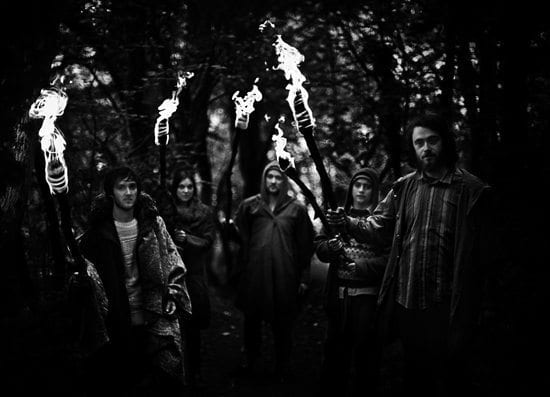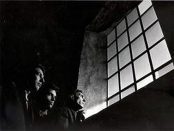Is it me, or is music getting bigger by the year? Now we have completed another decade, it is staggering to look back and realise just what seismic shifts we have experienced.
The first half of the decade marked it out as the era of minimalism, dominated by the pared-back, elementary sounds of the Strokes, the White Stripes and a whole cavalcade of physically and sonically skinny electro and post-punk proponents. Even the inclusion of a bass guitar seemed, to many, to be ‘overdoing it a bit’. Mainstream appeal came only to the barest bones clad in the most stylish upholstery. Meanwhile, the makers of big rock, the builders of the proverbial Sonic Cathedrals, were content to sculpt monumental follies deep underground, stroking their beards and fiddling with their pedal boards. Somehow, though, music underwent a collective expansion. From the rambunctious orchestrations of Arcade Fire, the CSN-esque choral pastoralism of Fleet Foxes, even the experimental layering upon the indie foundations of Foals, straightforward guitar rock simply wasn’t enough. In these recession-beleaguered times, listeners started wanting more sound for their pound. Much, much more. Something epic.
This is where Mancunian quintet Spokes enter the frame. Initially a more post-rock/shoegaze- leaning proposition, with the emphasis on skyscraping melodic guitar/violin atmospherics (see debut mini-album ‘People Like People Like You), they certainly know their way around epicness, epicicity, epicism, or however you might quantify the word epic. Their debut full-length appears to be a proficient stab at harnessing the public appetite for ‘big music’, with its head in the post-rock stratosphere but its feet firmly planted on melodic indie bedrock. Though maybe not yet bestowed with the accursed golden albatross of ‘next big thing’ status, ‘Everyone I Ever Met’ could capably catapult them to the dizzying heights of, say, the next medium-sized thing.

The majority of songs on ‘Everyone I Ever Met’ are simply constructed, but monumentally executed. They generally follow a pattern of repetition and expansion, simple riffs or motifs cycling around, starting quietly and building, eddying as they spiral upward toward a crashing crescendo. First single ‘We Can Make It Out’ is a case in point, quiet passages and delicate violin parts punctuated with massive cymbal splashes, a huge chorus, tribal drumming and a monolithic climax. Occasionally, songs swell so much they are at risk of slipping their moorings and floating away. The title track, for instance, threatens to buckle under its own weight if it doesn’t take off immediately. The presence of a crack rhythm section and a sweet sense of melody, however, keeps them firmly anchored. Rather than adopting the post-rock conventions of shifting time signatures and multi-part arrangements, many tracks have a sing-song quality, emphasised by tremulous, breathy lead vocals and wispy, feminine counterpoint harmonies. Often, voices meld into a harmonic chant, with voices drifting on the wind like playground echoes. They regularly convey melancholia, but balance it with a sense of jubilation and sheer youthful exuberance. One bone of contention, however, has to be the lyrics, which tend toward the unprepossessing, lovestruck fare that Chris Martin might idly scribble while sitting on his solid gold toilet leafing through National Geographic magazine. Still, you can’t help but feel the words themselves were intended to be subservient to the mood of each song, and with all the other noise going around them, you can barely hear half of them anyway.
The album has a woozy quality, a codeine daydream gradually becoming more vivid, then ebbing away from lucidity. At times, the sheer density of the sound teeters on the brink of inducing a kind of aural claustrophobia, but by breaking up the album with the delicate, if relatively throwaway, likes of ‘Sun It Never Comes’ and ‘Canon Grant’, they avoid allowing their epic bent becoming just a little too much to handle. They also have a knack of deploying cracking pop like ‘Peace Racket’, an Arcade Fire-esque joyous explosion that inevitably gets an epic, shoegazey wash, but thunders along tunefully throughout. The opposite end of the Spokes spectrum is represented by smouldering, piano-based mood pieces such as ‘Happy Needs Colour’. Of course, this being Spokes, even this song unfolds into a widescreen sonic vista.
Overall, Spokes have very nearly achieved a balance between folk-inflected indie-pop and epic post-rock sound landscaping. As a band in their infancy, hopefully their more overbearing aspects will be subsumed by their melodic skill, and, as an album, ‘Everyone I Ever Met’ could well serve to propel Spokes beyond the realms of support slots and minor cultdom to some rather heady heights indeed.
(Released Jan 17th 2011 on Counter Records)

The aim of art is to represent not the outward appearance of things, but their inward significance. – Aristotle

















